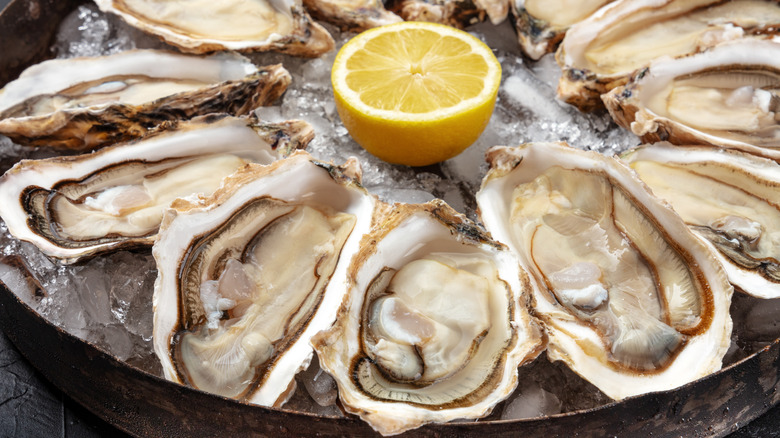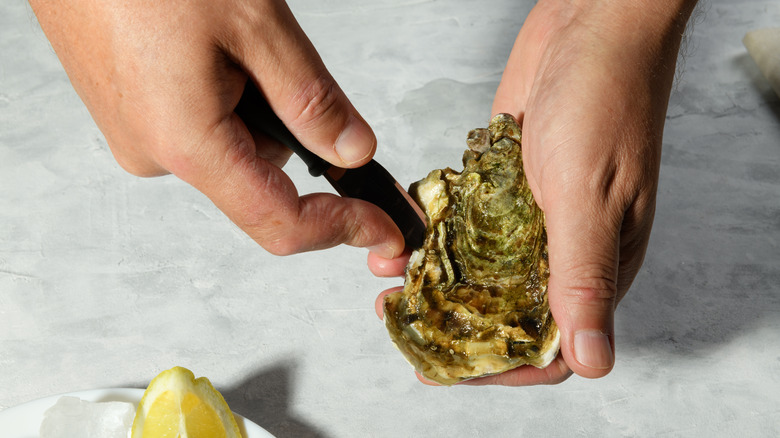Oysters Might Soon Become More Difficult To Find. Here's Why
Under normal circumstances, oysters can be hard to find, and those that are fresh and high-quality will usually cost you a pretty penny, NPR reports. These mollusks are estimated to have been around for nearly 300 million years, according to Business Insider, and humans have been enjoying the shellfish for centuries. It wasn't until somewhat recently, however, that they were considered a fine food. In fact, they used to be handed out as free bar snacks — and later as a cheap street food in cities like London, Paris, and New York during the 19th century.
Under more recent circumstances, however, oysters have been even more expensive and tougher to track down, a recent Business Insider article reports. As the popularity of oysters has grown, so have the problems related to the delicacy. Overfishing, pollution of waters, and other environmental issues have reduced their population, transforming them from an inexpensive and casual snack to a luxury item only found in some establishments. Following events of this past summer, they may become even more difficult to locate.
Hurricane Ida aftermath is making oysters more difficult to come by
Hurricane Ida, which hit Louisiana on August 29, devastated the state's farmers, who are the country's top producers of oysters, Business Insider reports. Debris from the disaster ruined many of the area's oyster beds, and one fisherman told WWL-TV that the beds could take years to be rehabilitated to their former rate of productivity. For now, the shellfish are scarce, leaving restaurant owners with the choice of paying a premium for oysters or forgoing them from menus altogether.
COVID-19 has added another layer of difficulty to restaurateurs' oyster-related challenges. Many shuckers who were laid off during the pandemic are not returning to work. "Shucking is kind of an art," Jake Palmer, director of operations at a Louisiana-based seafood chain, told Business Insider. "It's very hard work. It puts a lot of stress on the wrist, forearm, the shoulders, and the feet. We're seeing less people interested in doing that kind of work than ever had before." If you're a lover of raw seafood wondering why your oysters have been so limited or expensive lately, the labor shortage and a hurricane are your answer.

